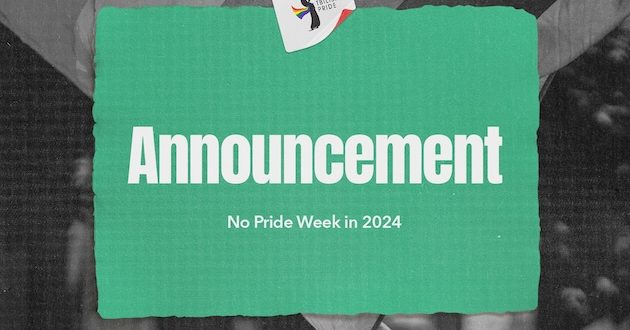
BRATISLAVA, Jun 26 (IPS) – “If this legislation passes, LGBT+ people simply aren’t going to be able to live here.” The warning from Tamar Jakeli, an LGBT+ activist and Director of Tbilisi Pride in Tbilisi, Georgia, is stark, but others in the country’s LGBT+ community agree, accurate.
Jakeli is talking to IPS in early June, soon after the ruling government party, Georgian Dream, proposed a bill in parliament that would, among others, outlaw any LGBT+ gatherings, ban same-sex marriages, gender transition and the adoption of children by same-sex couples.
It will also prohibit LGBT+ ‘propaganda’ in schools and broadcasters and advertisers will also have to remove any content featuring same-sex relationships before broadcast, regardless of the age of the intended audience.
Strikingly similar to various legislation passed over the last decade in Russia, where the regime has looked to crack down on any open LGBT+ expression, critics say it could, if passed, have a devastating effect on Georgia’s queer community.
They fear it will lead to violent attacks on LGBT+ people and an increase in stigmatization, marginalization, and repression of the community.
“This legislation will give the green light to anyone who already has very conservative opinions to unleash violence on the LGBT community,” says Jakeli.
Experience from other countries where similar legislation has been introduced suggests this is a very likely outcome.
“The experiences of Russia and other countries that have passed such legislation show a clear pattern: state-sanctioned discrimination tends to foster an environment of hostility and violence against LGBTI communities,” Katrin Hugendubel, Advocacy Director at LGBT+ rights group ILGA-Europe, told IPS.
“This legislative move in Georgia could embolden extremist groups and individuals, leading to an increase in hate crimes and violence. The societal message that LGBTI people are less deserving of rights and protections can have severe and dangerous consequences,” she added.
Rights groups say that while the law would have an immediate negative effect on many aspects of LGBT+ people’s lives, it is also likely to reverse what has been a growing acceptance of the community in the country, albeit a slow one.
Although recent research suggests prejudice against LGBT+ people runs deep among what is a traditionally conservative population, activists say attitudes have become more tolerant towards the community in the last few years.
“There is still a conservative society here, and transphobia, homophobia and prejudice exist, in recent years, surveys have shown people being less homophobic, especially in big cities and among the young. The dynamic has been positive,” Beka Gabadadze, an LGBT+ activist and Chairperson of the Board at Queer Association Temida in Tbilisi, told IPS.
But this could now all be under threat.
“The introduction of this legislation has the potential to undo much of the progress that has been made in recent years,” Hugendubel warned.
“Improvements in the situation for LGBTI individuals in Georgia have been fragile and often driven by the efforts of activists and supportive segments of society. This law, by contrast, represents a significant setback that could negate the positive changes achieved. It could lead to increased fear, discourage public expressions of identity, and drive LGBTI people and their allies back into hiding,” she said.
The bill must pass three readings in parliament before it becomes law, and the last of those is expected for September, a few weeks before planned parliamentary elections.
Activists say they expect it to be passed, pointing to the government’s willingness to push through legislation regardless of how unpopular it might be. a law requiring civil society groups that receive a certain amount of funding from abroad to register as “pursuing the interests of a foreign power” was passed earlier this year, despite massive street protests and overwhelming public opposition to it.
Over the next few months as the Bill is debated, Jakeli says she is expecting rising repression against the community.
She says her organization’s offices have already been attacked—she believes by people connected to the government. A Georgian Dream MP appeared to claim responsibility for a series of attacks against the offices of civil society organizations in May this year.
She also expects many LGBT+ people to start, if they have not already, planning a new life abroad.
While Georgian Dream has said the bill has been introduced as a necessary measure to stop the spread of “pseudo-liberal” values that undermine traditional family relationships, critics see it as the latest cynical attempt by a government turning away from the West to increase stigmatisation of certain groups, particularly the LGBT+ community, for political gain ahead of elections.
Georgian Dream also linked its foreign influence legislation to protecting the country from NGOs promoting LGBT+ rights, among others.
“The timing and nature of these legislative moves suggest that they are part of a broader strategy to appeal to homophobic and anti-minority sentiments among certain voter bases,” said Hugendubel. “This tactic has been used in other countries to consolidate power by stoking fears and prejudices,” she added.
Following the implementation of the foreign agent law, the US slapped sanctions on Georgian officials and the EU is currently considering similar action. There have been calls for similar moves to deter the government from pursuing its anti-LGBT+ legislation.
“International pressure, such as sanctions or diplomatic measures, can be effective in signalling to the Georgian government that these actions have severe repercussions. Additionally, domestic protests and sustained public opposition can also play a crucial role in pushing back against these laws,” said Hugendubel.
But Jakeli said the government might try to use any mass protests to further push their own repressive political narrative.
“What Georgian Dream wants is for LGBT+ activists to go out on the streets now and protest and then they can turn around to voters and say, ‘Look, these are radicals trying to overthrow the government who want to spread their decadent western morals through Georgian society’,” she says.
Activists say they are holding out hope that the elections in October will bring about a change of government. Although Jakeli admits the “odds of that happening are not great” with opposition parties, she points out, “facing almost as much repression from the government as the LGBT+ community does.”
But even if Georgian Dream do remain in power after the October vote, Jakeli believes its efforts to further stigmatize the LGBT+ community may actually have already backfired.
“The protests against the ‘foreign agent’ law united different sections of society and more and more people see anti-LGBT+ laws as another ‘Russian’ method of polarizing and dividing society.
“When I was on the front lines of the foreign agent law protests, for the first time I felt as if I was part of the majority, not minority, in Georgia. I think that people have realized that everyone should have human rights, including LGBT+ people,” she says.
IPS UN Bureau Report
Follow @IPSNewsUNBureau
Follow IPS News UN Bureau on Instagram
© Inter Press Service (2024) — All Rights ReservedOriginal source: Inter Press Service
 Top Naija News – Nigeria News, Nigerian News & Top Stories Top Naija News – Nigerian Newspapers, Nigerian News. topnaijanews is a daily Nigerian newspaper covering Latest News, Breaking News, Entertainment, Sports, Lifestyle and Politics.
Top Naija News – Nigeria News, Nigerian News & Top Stories Top Naija News – Nigerian Newspapers, Nigerian News. topnaijanews is a daily Nigerian newspaper covering Latest News, Breaking News, Entertainment, Sports, Lifestyle and Politics.




